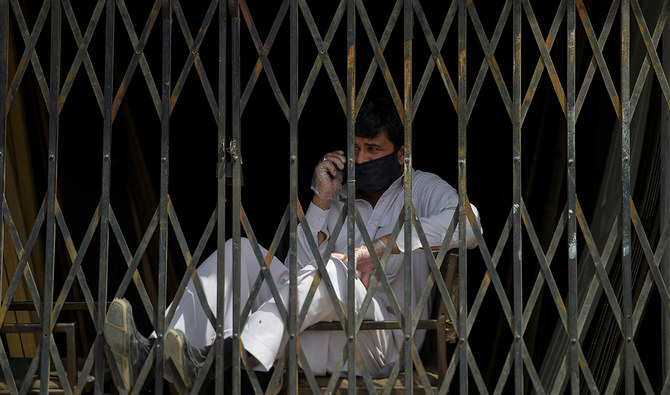ISLAMABAD: Pakistani analysts and rights activists on Tuesday criticized the Pakistan government’s authorization of the country’s premier spy agency, the Inter-Services Intelligence (ISI), to intercept and trace calls on the pretext of national security, saying the move would undermine privacy of citizens and could be used to suppress political opponents, activists and media.
In a notification issued on Monday, the information technology (IT) ministry said the government had authorized the ISI to intercept phone calls and messages “in the interest of national security,” adding to the already outsized role and powers of the shadowy military outfit.
The decision has drawn attention to the issue of surveillance by spy agencies, particularly after audio clips, including those of former Prime Minister Imran Khan and his wife, were leaked online ahead of the Feb. 8 general election.
Arab News reached out to the Pakistan Telecommunication Authority (PTA), information ministry and telecom operators for comments on a recent surveillance system sought by government from telecom operators and the impact of fresh authorization to intercept calls on consumers, but none of them responded to the queries.
“The government’s step to allow intelligence agencies to intercept calls and by notification provide legitimacy to such government actions is extremely unfortunate because it allows non-transparent and unchallengeable circumstances for the citizens to protect their own privacy,” Adnan Rehmat, a journalist and media activist, told Arab News.
“This sneaky way of notifying to provide so-called legality to intercepting calls seems to be more political, triggered and designed.”
Although the government has the right to formulate policies, it must do so after open discussion and consultations, especially for policies impacting the lives of common citizens as these cannot be executive decisions and the viewpoints of those affected must be heard, according to Rehmat.
He said this was also a “suspicious move,” given the past experiences of tapping phone calls of political leaders, rights activists and other prominent figures, including judges.
Following the leaking of their telephonic conversations, ex-PM Khan’s wife, Bushra Khan, and others filed petitions in the Islamabad High Court (IHC), challenging the unauthorized surveillance and privacy violations. During the hearings, it was revealed that the PTA had required telecom companies to fund, import and install a mass surveillance system to access citizens’ data.
According to court documents seen by Arab News, the Lawful Intercept Management System (LIMS) enables access to private messages, video and audio content, call logs and web browsing histories. The court later observed that the mass surveillance system “lacked a legal foundation” and was being put in place without judicial or executive oversight.
Nighat Dad, executive-director of the non-profit Digital Rights Foundation based in Pakistan, said the IT ministry’s notification granted permission to listen to private conversations without adequate justification or reasoning, which violated the right to privacy.
“It also contravenes the Fair Trial Act by lacking oversight and accountability measures in case of misuse,” she told Arab News.
The Fair Trial Act stipulates that surveillance or interception of a citizen must be authorized by a proper warrant, including warrants issued under section 11, which permits the collection of evidence through interception, audio or video recording, communication monitoring, or surveillance of movements.
“If the privacy of citizens not posing a threat to national security is infringed upon, what legal recourse do they have,” she questioned, saying that this was concerning because surveillance orders typically included protections and safeguards for citizens everywhere.
Usama Khilji, a director at the ‘Bolo Bhi’ advocacy forum for digital rights, said the Fair Trial Act outlined a process for lawful interception that required obtaining a court warrant, which the latest notification violated and ignored.
“The excuse of national security has been used since the inception of Pakistan to justify political meddling and this is another example of it,” he told Arab News.
The audio leaks case in the Islamabad High Court clearly illustrated the political nature of surveillance, particularly targeting activists, journalists and political leaders, according to Khilji. It is an effort to provide “legal cover to existing practices.”
“There should be transparency and legal oversight over all surveillance mechanisms along with avenues for redress against illegal surveillance,” he added.
Munizae Jahangir, a Pakistani journalist and activist, said the government move was a clear violation of an individual’s fundamental rights and also Article 14 of the constitution as no law or provision within any law superseded the constitution.
Article 14 of the Constitution of Pakistan clearly states that the dignity of a man shall be inviolable, and within lawful limits, and home privacy shall remain private.
“It is hoped that this will be legally challenged as it likely contravenes privacy rights and may not withstand legal scrutiny,” she told Arab News, questioning if this was an attempt to turn Pakistan into a “security state.”
“The provisions outlined in the notification are typically reserved for times of war, which we are clearly not in.”
She said it was evident that such measures were being used not against militancy, but to “control political opponents, media, judiciary and human rights activists.”
Iqbal Khattak, executive director of the Islamabad-based Freedom Network civil liberties organization, warned that without a clear oversight mechanisms and well-consulted terms of references, this move would undoubtedly violate freedom of speech and privacy.
“Time and again, we have witnessed that in the name of national security, individual freedoms are consistently under attack,” he told Arab News.
Created in 1948, the ISI gained importance and power during the 1979-1989 Soviet occupation of Afghanistan and is now rated one of best-organized intelligence agencies in the developing world.
Widely feared by Pakistanis, it is believed to have a hidden role in many of the nuclear-armed nation’s policies, including in Afghanistan and India. The ISI is seen as the Pakistani equivalent of the US Central Agency (CIA) and Israel’s Mossad. Its size is not publicly known but the ISI is widely believed to employ tens of thousands of agents, with informers in many spheres of public life.
Rights activists raise privacy concerns after Pakistan authorizes top spy agency to tap calls, messages
https://arab.news/w7cfy
Rights activists raise privacy concerns after Pakistan authorizes top spy agency to tap calls, messages

- Pakistan this week authorized its Inter-Services Intelligence spy agency to tap calls, intercept messages in the ‘interest of national security’
- The decision drew public attention to issue of surveillance by spy agencies, particularly after leaking of several audio clips of notable figures
Pakistani humanitarian organization unveils Rs15 billion ‘Rebuild Gaza’ initiative

- Alkhidmat Foundation has previously carried out Gaza relief activities worth about Rs5.5 billion
- ‘Rebuild Gaza’ will help reconstruct a hospital, schools and mosques, provide temporary shelters
ISLAMABAD: A Pakistani humanitarian organization on Saturday announced a Rs15 billion ($54 million) “Rebuild Gaza” initiative over the next 15 months, following the announcement of a ceasefire in the Palestinian enclave.
The ceasefire, which begins on Sunday, comes after extensive negotiations involving Qatar, Egypt and the United States. It will end the conflict that began in October 2023, killing over 46,000 Palestinians and leaving Gaza’s infrastructure in ruins.
The Alkhidmat Foundation Pakistan, which has previously carried out relief activities worth Rs5.5 billion ($20 million) in Gaza, announced the initiative during a press briefing. The new program will build on previous efforts, raising its total aid commitment to Rs20 billion ($72 million) within a little more than a year.
“The people of Pakistan have always stood by their brothers and sisters in Gaza during times of crisis, and we are hopeful they will once again contribute wholeheartedly to this noble cause,” the foundation’s president, Dr. Hafeez Ur Rehman, said, as per a statement.
The “Rebuild Gaza” plan includes providing temporary shelters, essential supplies such as food and medicines, mobile health units and ambulances.
It also aims to reconstruct five damaged schools, rehabilitate one hospital, rebuild 25 mosques and launch over 100 clean water projects.
Additionally, a residential tower will be constructed to provide housing, and 3,000 orphaned children will receive long-term sponsorship.
Dr. Rehman said the foundation, in collaboration with its partner organizations, remains steadfast in its commitment to delivering aid and ensuring the rehabilitation of affected communities in Gaza.
Pakistan’s deputy PM orders timely assistance for victims of Morocco boat tragedy

- More than 40 Pakistanis are feared to have drowned while attempting to reach European shores
- Pakistan has intensified efforts against human smugglers who facilitate journeys for illegal migrants
ISLAMABAD: Pakistan’s Deputy Prime Minister (DPM) Ishaq Dar on Saturday instructed the government to provide timely assistance to the victims of a recent boat tragedy off the coast of Morocco, where more than 40 nationals of his country are feared to have drowned while attempting to reach European shores.
Pakistan’s foreign office confirmed on Thursday that a migrant boat with 80 passengers on board, including several Pakistanis, had capsized near Morocco en route to Spain.
According to Moroccan authorities, 36 people were rescued on Wednesday from the vessel, which had departed Mauritania on January 2 with 86 migrants on board, including 66 Pakistanis, according to minority rights group Walking Borders.
The group’s CEO, Helena Maleno, said 44 of the 50 presumed dead were from Pakistan. The boat was reportedly heading toward Spain’s Canary Islands when it capsized.
Dar, who also serves as Pakistan’s foreign minister (FM), held a meeting in Islamabad earlier in the day to review the situation.
“The DPM/FM issued instructions for coordination of government response and asked the Ministries of Foreign Affairs and Interior to ensure provision of efficient and timely assistance to the Pakistani victims of the tragedy,” the foreign office said in a social media post.
Media reports claim almost all the Pakistanis who were on the boat were from cities in the eastern Punjab province.
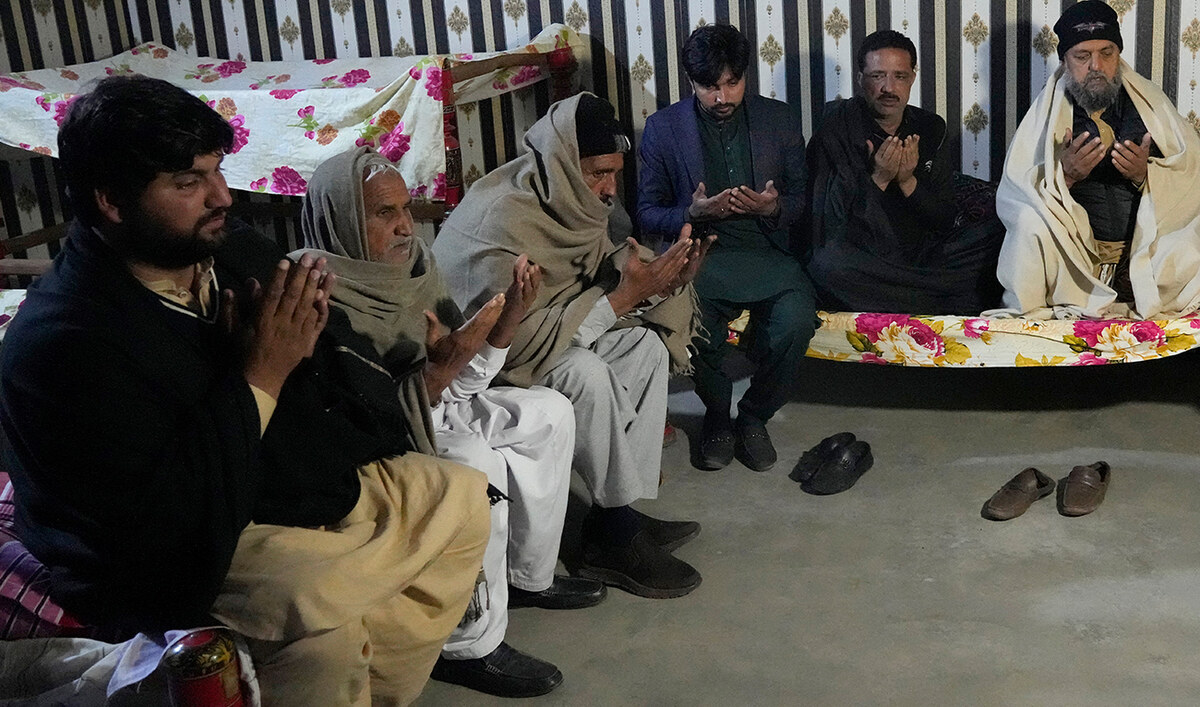
The government has intensified its efforts in recent months against human smugglers who facilitate perilous journeys for illegal immigrants to Europe and has made several arrests.
Prime Minister Shehbaz Sharif has called for enhanced cooperation with international agencies, seeking swift action against human trafficking networks.

He has also instructed the Federal Investigation Agency to compile a detailed report on migration-related incidents over the past year and implement an Integrated Border Management System (IBMS) to monitor and prevent illegal movement.
The incident near Morocco once again highlighted the perilous journeys many migrants, particularly Pakistanis, undertake due to conflict and economic instability in their home country.
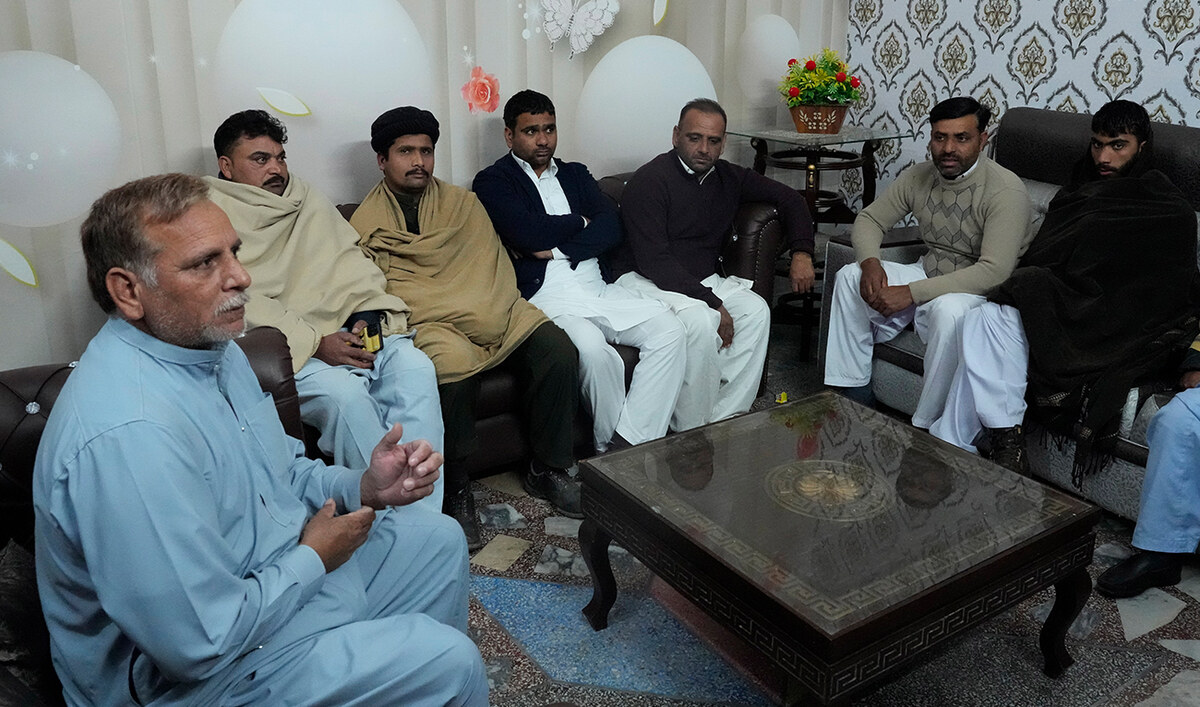
In 2023, hundreds of migrants, including 262 Pakistanis, drowned when an overcrowded vessel sank in international waters off the southwestern Greek town of Pylos.
It was among the deadliest boat disasters ever recorded in the Mediterranean Sea.
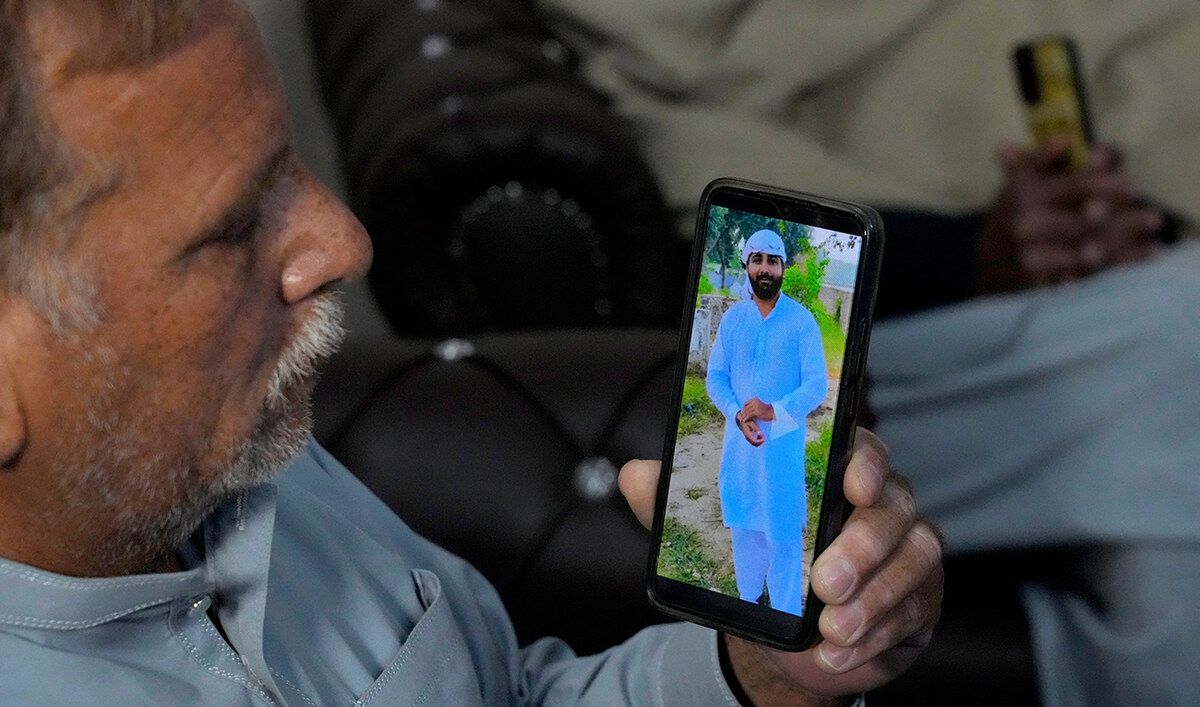
Noman and Sajid help Pakistan dominate West Indies in spin battle

- The spin duo shared nine wickets between them to dismiss West Indies for 137
- Pakistan stretched their lead to 202 by scoring 109-3 in their second innings
MULTAN: Noman Ali and Sajid Khan guided Pakistan to a strong position against the West Indies after another spin-dominated second day’s play in the opening Test in Multan on Saturday.
The spin duo shared nine wickets between them to dismiss the West Indies for 137 in reply to the home team’s 230 all out.
By the close, Pakistan stretched their lead to 202 by scoring 109-3 in their second innings, with Kamran Ghulam and Saud Shakeel batting on nine and two respectively when bad light ended play 25 minutes early.
Left-arm spinner Jomel Warrican (2-17) dismissed Muhammad Hurraira for 29 after an opening stand of 67 and Babar Azam for a second failure, trapped leg-before for five.
Skipper Shan Masood looked solid for his 52, hitting two sixes and two fours, before Warrican ran him out after attempting a quick single.
“The weather is foggy so if we have continuous play and take our lead over 300 then we can win this Test,” said Sajid.
“It’s great to bowl with Noman, who always guides me.”
Warrican wants the target to be under 250.
“Obviously we don’t want to get the lead go over 250 because it’s a spin-favoring surface,” said Warrican.
“We need a good comeback in batting the second time around on this pitch.”
The dry and grassless Multan pitch has already produced 23 wickets in six sessions — 19 on day two — even though two-and-a-half hours were lost on day one and another 30 minutes on Saturday because of poor visibility.
Noman grabbed 5-39 for his seventh five-wicket haul in Tests while Sajid finished with 4-65 to dismiss the West Indies after lunch in a first innings that lasted just 25.2 overs.

Noman and Sajid, who shared 39 of the 40 wickets in the last two Tests against England in Pakistan’s 2-1 series win last year, were once again unplayable.
Sajid opened the bowling and removed Mikyle Louis (one), Keacy Carty (0), Kraigg Brathwaite (11) and Kavem Hodge (four) in his first three overs.
Noman then further jolted the tourists with another four wickets to leave them tottering on 66-8.
The tailenders showed more resistance, with number 10 batsman Warrican unbeaten on 31 and Gudakesh Motie adding 19.
Jayden Seales was the last wicket to fall for 22.
Seales hit three sixes before holing out off spinner Abrar Ahmed.

Earlier, Warrican took 3-69 as Pakistan lost their last six wickets for 43 runs after resuming at 143-4.
Shakeel top-scored for Pakistan with 84 off 157 deliveries, including six boundaries, while keeper Mohammad Rizwan added 71.
Shakeel added an invaluable 141 for the fifth wicket with Rizwan, lifting Pakistan from a precarious 46-4 on day one.
Pakistan begins mandatory Hajj training by holding first session in Peshawar

- The country’s religious affairs ministry plans to hold the training sessions at 147 locations across Pakistan
- These sessions will use audiovisual material and conclude before the Muslim fasting month of Ramadan
PESHAWAR: Pakistan’s religious affairs ministry on Saturday initiated mandatory training sessions for pilgrims performing this year’s Hajj under the government scheme by holding the inaugural session in the northwestern city of Peshawar.
Earlier this month, Pakistan and Saudi Arabia signed the annual Hajj agreement in Jeddah, which formally confirmed that the South Asian nation would send 179,210 people to perform the pilgrimage this year.
More than 200 pilgrims participated in the first session in Peshawar, held at a private educational institution in the city.
Muhammad Umair Butt, the ministry spokesperson, told Arab News that authorities have planned the mandatory Hajj training sessions at 147 locations across the country.
“According to the Saudi government’s instructions, we have to provide training to Hajj pilgrims to acquaint them with the administrative affairs and other Hajj rituals so they can complete their worship properly,” he said, adding the sessions were also designed to sensitize pilgrims on how to spend their time in Saudi Arabia.
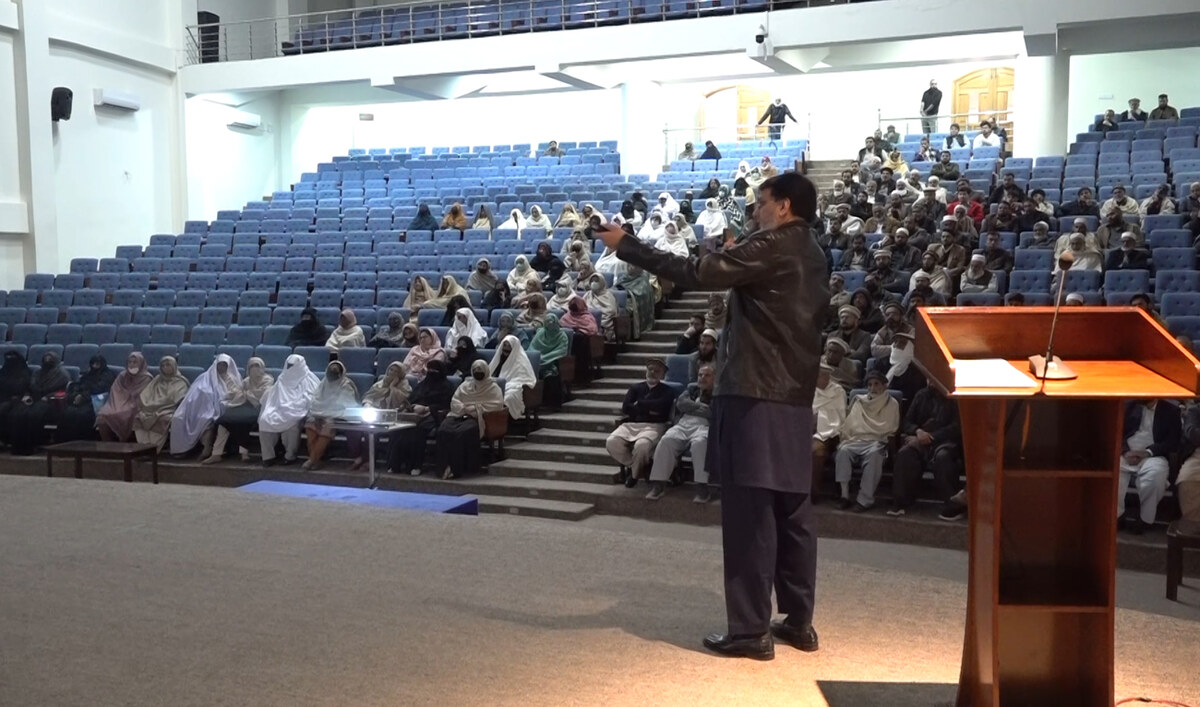
Butt said the training sessions would cover all required topics in two sittings.
“These sessions will be concluded before [the Muslim fasting month of] Ramadan,” he said. “The sessions will be held from January 18 to February 27 across the country in every province.”
The religious affairs ministry has taken several initiatives this year to facilitate pilgrims, including the launch of the Pak Hajj 2025 mobile application to guide them.
The app is available for both Android and iPhone users.

The ministry spokesperson said each sitting of the training session will last for about three hours, during which pilgrims will receive guidelines through audiovisual material.
Speaking to Arab News, participants of the training session expressed satisfaction with the information shared, saying multiple questions they had about the Hajj rituals had been answered.
“It is good that I attended the first session in which they provided detailed information about the app,” Mujib-ur-Rehman Bhatti, a resident of Peshawar’s Gulbahar neighborhood, said after participating in the training.

He added the ministry had informed all the pilgrims in detail about how to overcome common problems reported during Hajj.
“The things they taught us were for our own ease and can save us from tension ahead,” Bhatti said.
Another participant of the session, Ali Khan, an official at the Civil Aviation who is planning to perform Hajj with his family, called it a “brilliant program.”
“Everything was explained quite well and in significant detail,” he said. “We gathered information from videos, YouTube and other sources. The session was very practical and important.”
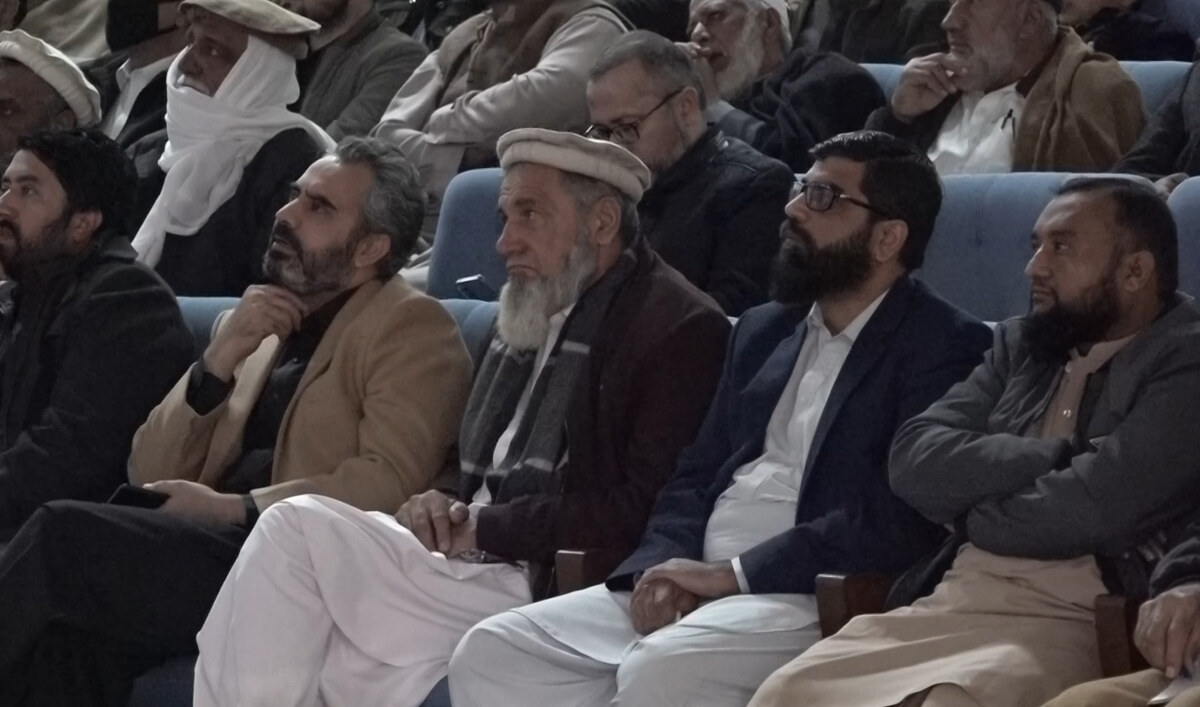
Pakistan eyes $3 billion investment as Sindh announces China-backed special economic zone

- CM Murad Ali Shah emphasizes its transformative potential amid hopes for over 100,000 jobs
- Dhabeji SEZ will be located near Karachi’s ports, offering connectivity to regional trade routes
KARACHI: The provincial administration of Sindh on Saturday announced the establishment of a special economic zone after the signing of a memorandum of understanding supported by Chinese authorities, projecting the initiative to transform Pakistan’s economy by attracting $3 billion in investment and creating over 100,000 jobs.
The announcement is part of the second phase of the China-Pakistan Economic Corridor (CPEC), which aims to enhance industrial development by setting up such economic zones. The first CPEC phase focused on infrastructure and energy projects, while the second phase emphasizes industrial collaboration between the two countries.
The Dhabeji Special Economic Zone (SEZ), which is being developed under public-private partnership by the Sindh administration, is strategically located near Karachi’s ports, offering connectivity to regional trade routes to position it as a vital industrial hub.
“The Dhabeji SEZ is set to transform Pakistan’s economic landscape,” Sindh Chief Minister Syed Murad Ali Shah said, according to an official statement released after the MoU signing.
He added the project would stimulate industrial growth, reduce reliance on imports, boost exports and create a self-reliant and sustainable economy.
Special Assistant to the CM on Investment, Syed Qassim Naveed Qamar, also highlighted the SEZ’s transformative potential.
“This SEZ will create over 100,000 direct and indirect jobs, promote value-added industries and empower local communities through skills development.”
The MoU signing ceremony was also attended by members of the Sindh Cabinet, senior officials and other dignitaries.


